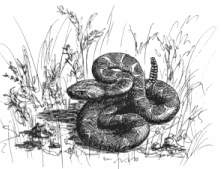|
|
|||
|
|
|||
VITAMIN C FOR DOGS & SNAKE BITES
|
|||
I have added this page as I am a firm believer in the value of Vitamin C, and its power to heal. For those of you with an animal that has been bitten by a snake and who are unable to take the animal immediately to seek Veterinarian attention, the articles shown may be of some use to you. I must state here that I am NOT a Veterinarian, and therefore cannot give advice to anyone with an animal that has been bitten by a snake! It is best to contact your own Veterinarian,
or other owners who have used the Vitamin C treatment with success! Each article has a contact email address with the exception of Pat Coleby who wrote the original article. There will always be disagreements about whether Vitamin C will aid snake bite victims. At the bottom of the page are links to snake bite sites which cover
regular procedures in more detail. I suggest that you read all
available material thoroughly and do your own research. Discuss it with your own Veterinarian before making any decisions! In a recent survey, the response of 106 veterinary
surgeons revealed that snake bite in domestic animals in Australia is
frequent, with an estimated 6200 cases reported annually. Bites were
more prominent in rural (78%) than urban areas (22%) with brown, tiger
and black snakes accounting for 76%, 113% and 6% of cases,
respectively. Cats and dogs were the most frequently reported victims.
Ninety-one percent of cats and 75% of dogs survived following the
administration of antivenom whereas 66% of cats and 31% of dogs
survived without antivenom. Overall, in 33% of cases antivenom was not
used, and venom detection kits were used in only 1% of cases. A number
of drugs were used in various combinations with or without antivenom
and intravenous fluids in the treatment of animals with snake bite,
but their role in reducing the severity of envenomations was not
assessed.
|
|||
|
|
|||
|
Pat Coleby on Vitamin C Treatment for SNAKE BITES Early in 1930, an American, Dr Klenner, (extensive
article on Vitamin C by Dr. Klenner here)
did much research on the use of Vitamin C on humans. In turn a Californian Vet, Dr Wendell Bellfield, carried on the good work with impressive results on all sorts of dog ailments that are generally considered incurable or fatal. Today, in USA, there are now a significant number if Vets
practicing alternative Medicine such as this. Pat Coleby |
|
||||||||||||||||
IMMEDIATE ACTION: Identify the snake if possible. Restrict movement of the pet. Loosely immobilize the limb in a functional position if bitten on an extremity. DO NOT incise the bite wound to aspirate the venom and DO NOT apply a tourniquet without veterinary assistance. DO NOT apply ice to the area. Seek veterinary attention. Bites and stings can be dangerous to your pet due to the venom injected or because your pet is allergic to it. Initial treatment is to apply a special type of bandage - Pressure Immobilization. However most of our pets are bitten on the mouth or around the head and rarely is the bite visible. Pressure immobilization is used for the management of snake bites, spider bites and where allergic reactions are occurring.
• Ticks • Natural
Flea Remedies • Bee Stings • Spider Bites • Fly Bites •
|
|||||||||||||||||

